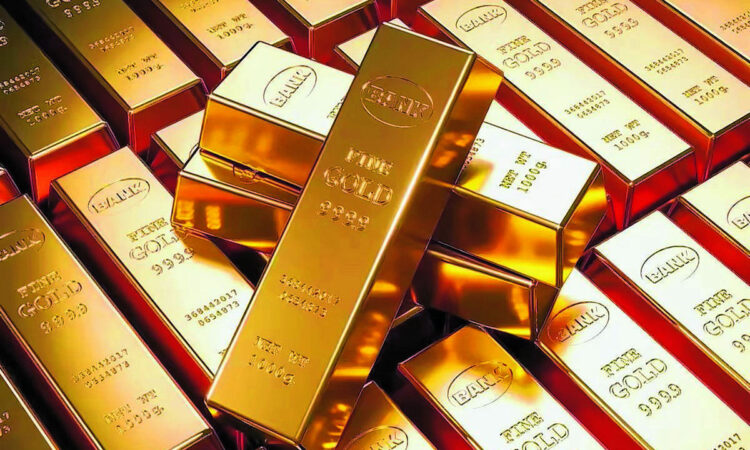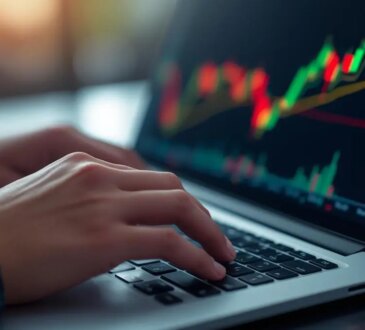
Dar es Salaam. A surge in gold purchases by central banks globally has pushed the precious metal to become the second-largest reserve asset after the US dollar, according to a report by the European Central Bank (ECB) released in June this year.
However, analysts warn that some institutions may be approaching saturation levels.
Central bank gold holdings have returned to levels last seen in the 1960s, though unlike in that era, prices have soared—recently surpassing 4,000 US dollars per ounce.
In 2023, gold and the euro each accounted for approximately 16.5 percent of global official reserves. By 2024, gold’s share rose to 19 percent while the euro fell to 16 percent. The US dollar remained dominant at 47 percent.
Gold, along with foreign currencies, is traditionally held by central banks to hedge against inflation and to diversify investment risk. It also acts as a buffer, with reserves deployed to support national currencies during periods of financial stress.
Currently, central banks represent about 20 percent of global gold demand—double their share in the 2010s. The ECB report noted that gold is increasingly attractive to emerging and developing economies, which are concerned about financial sanctions and the declining relevance of major currencies in the global monetary system.
Over recent years, gold has repeatedly broken price records. However, 2025 has brought considerable volatility, partly due to swiftly changing US fiscal policies.
A major shift occurred in February 2022 when Russia launched its full-scale invasion of Ukraine. The war, combined with rising inflation and interest rate expectations, drove investors toward gold as a safe-haven asset. That trend has persisted amid ongoing geopolitical and economic uncertainty.
China has been the most active in driving up gold demand, while India and Turkey are also among the world’s top buyers.
Meanwhile, the US dollar—long the world’s primary reserve and trading currency—is facing growing challenges from rival currencies and shifting global economic dynamics. Many countries are now diversifying their reserves and trade practices away from the greenback.
According to financial platform Wealth, the dollar lost 9.5 percent of its value by October 8, 2025. During the same period, the euro appreciated by 12.6 percent, the Chinese yuan by 2.6 percent, the Japanese yen by 6.4 percent, the British pound by 7.3 percent, and the Mexican peso by 13.2 percent.
The decline follows an earlier report by Al Jazeera showing a 10.8 percent drop in the dollar’s value during the first half of 2025—marking the steepest decline since 1973. The trend has been linked to economic policies under President Donald Trump, which have triggered a global sell-off of dollar holdings and weakened the currency’s image as a reliable store of value.
Independent economist Oscar Mkude says a weaker dollar makes US products cheaper globally, which could benefit buyers but hurt American exporters.
“This is good news for consumers abroad, but bad news for US sellers and those who export to the US,” he said. He also noted that the shift gives competitive advantage to other currencies in international trade.
Mr Mkude warned that uncertainty around US tariffs is prompting trade partners to seek more stable markets.
“Investors are losing confidence. If one administration imposes restrictions, another might introduce even more. People are searching for alternatives that offer commercial freedom without negative economic consequences,” he added.
He also noted that the US is expected to lower interest rates soon, reducing returns for those holding dollar-based assets.
While exporters like Tanzania could receive lower returns on goods such as coffee, importers stand to benefit from cheaper international products. “Fuel prices, for instance, could fall, offering relief to consumers,” he said. He added that tourism operators paid in dollars may earn less, though the Tanzanian shilling remains relatively strong.
Economist Dr Donath Olomi echoed similar sentiments, saying a falling dollar presents both risks and opportunities.
“For importers, especially of raw materials, this lowers costs and boosts competitiveness. But exporters will receive less in dollar terms,” he said.
He added that currency volatility makes long-term business planning difficult, and that while switching markets might seem like a solution, it is not always practical.
“Changing trade direction takes time. International trade relationships are built over years, and you may find that by the time you shift, currency values have changed again,” he said. He also pointed out that long-term contracts, especially in sectors like coffee, limit the flexibility of exporters.
Bank of Tanzania Governor Emmanuel Tutuba says the rise in global gold demand has had a positive impact on the Tanzanian economy and currency.
“Gold exports have increased significantly. For the first time, the price of gold has reached 4,063 US dollars per ounce, driven by strong investor demand amid global uncertainty,” said Mr Tutuba.
He explained that the BoT buys gold directly from miners, who either sell locally or export, thereby boosting the country’s foreign exchange reserves.
Mr Tutuba added that local manufacturing—particularly in tiles, glass, and furniture—has reduced reliance on imports, further supporting the shilling.
He also highlighted the benefits of a new policy requiring all domestic transactions to be conducted in Tanzanian shillings rather than US dollars.
“This approach has strengthened the shilling by ensuring that local goods and services are priced in the national currency, reserving dollars for foreign trade,” he said.
Tourism and agriculture have also contributed to currency stability.
The sector has recovered well, especially in Arusha and Zanzibar, following the pandemic. Exports of maize, beans, rice and groundnuts continue to perform well.
“Increased gold sales, reduced import dependency, sound currency policies, pro-growth legislation, and the expansion of non-traditional exports have all played a role in reinforcing the strength of the Tanzanian shilling,” said Mr Tutuba.



